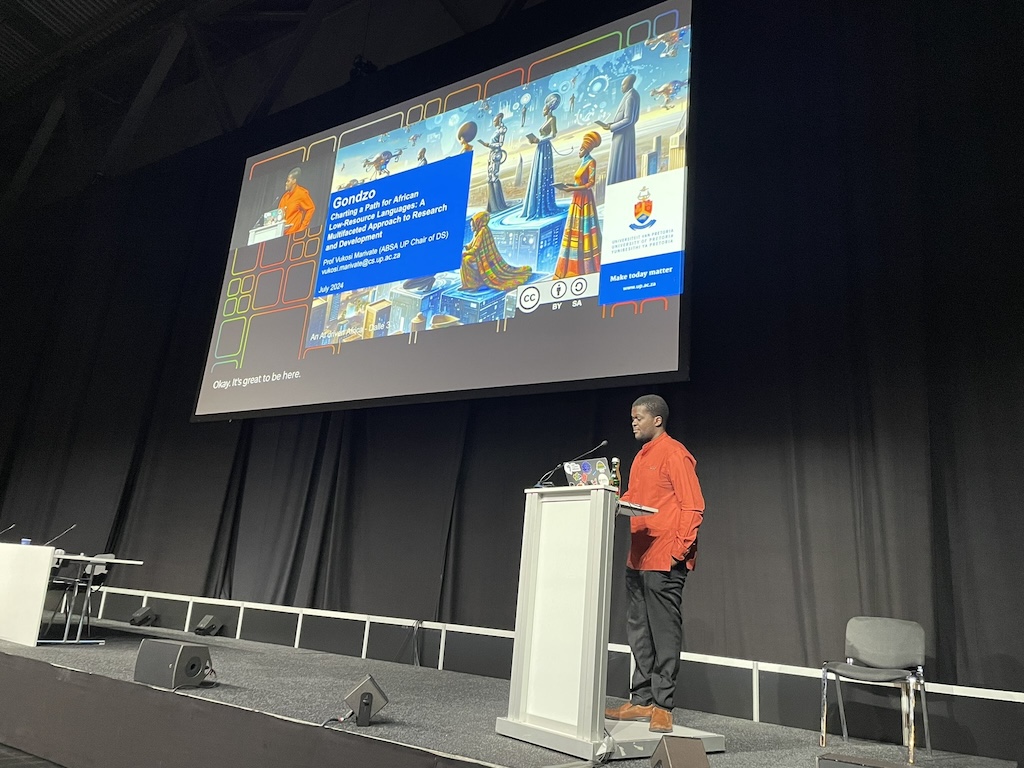Prof. Vukosi Marivate at ICML 2024: Addressing Challenges in Low-Resource African Languages in NLP
Introduction

Introduction
At the International Conference on Machine Learning (ICML) 2024, Prof. Vukosi Marivate delivered an invited talk titled “Gondzo - Low-Resource Languages: A Multifaceted Approach to Research and Development” [Recording]. He shed light on the significant challenges faced by low-resource African languages in Natural Language Processing (NLP) and shared innovative solutions from his work and the broader African AI community.
Key Challenges
Resource Inequality
Prof. Marivate highlighted the stark disparities in NLP research resources between developed and developing nations. African scholars often struggle with limited annotated datasets, computational power, and financial support, which hinders the advancement of NLP for many African languages. He also touched on the challenges faced by researchers due to differences in research systesms
Data Scarcity
A critical issue is the lack of high-quality, annotated data. Many African languages are underrepresented in digital and textual forms, making it difficult to train effective NLP models.
Computational Constraints
Limited access to GPU infrastructure further restricts African researchers. This forces them to rely on less powerful machines, limiting the scope of their NLP experiments.
DSFSI’s Contributions
Prof. Marivate showcased the efforts of the Data Science for Social Impact (DSFSI) research group in addressing these challenges:
- Data Collection and Annotation: Collaborating with local communities and linguistic experts to create relevant datasets.
- Resource Optimization: Leveraging cloud-based solutions and distributed computing for efficient NLP tasks.
- Model Development: Creating lightweight, efficient NLP models tailored for low-resource languages.
African Startups and Community-Driven AI
Prof. Marivate also highlighted the role of African startups and community-driven AI initiatives:
- Localized Solutions: Startups are developing NLP applications specific to African needs, such as language translation and voice recognition systems.
- Collaboration: Partnerships between startups, academic institutions, and international organizations accelerate NLP advancements.
- Open-Source Projects: Community-led projects share tools, datasets, and best practices, democratizing access to NLP resources.
- Equitable licensing: Highlighting the need to have equitable licensing.
- Capacity Building: Workshops, hackathons, and training sessions equip local talent with necessary skills.
- Advocacy: Communities advocate for greater investment in NLP for African languages, raising awareness and garnering support.